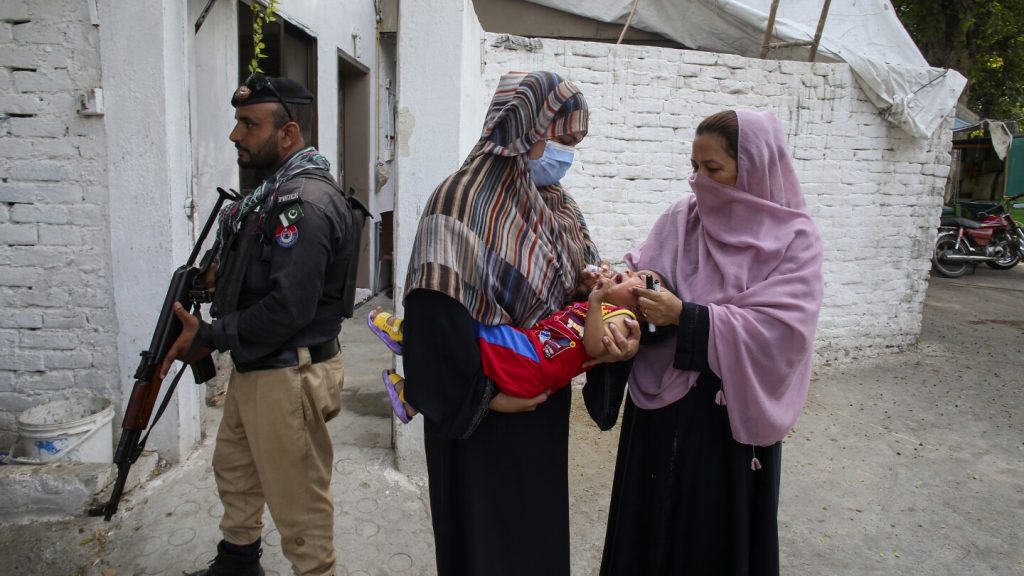The attack on the vehicle carrying officers assigned to protect health workers conducting a polio immunization drive in South Waziristan, Pakistan, left six officers and three civilians wounded. Fortunately, no polio workers were harmed in the incident. The attack, which targeted police, has not been claimed by any group. This violence highlights the risks faced by vaccination teams in Pakistan, as militants often view the campaigns as a Western conspiracy to sterilize children.
Pakistan recently launched a drive to vaccinate 30 million children against polio, following the reporting of 17 new cases in the country since January. This poses a significant setback to efforts to eliminate polio in Pakistan, a goal that has been pursued for decades. Pakistan and Afghanistan are the only two countries where the spread of polio has never been stopped. The disease primarily affects children under the age of 5 and is usually transmitted through contaminated water sources.
The attack in South Waziristan underscores the challenges faced by health workers and security personnel involved in polio vaccination campaigns in Pakistan. These efforts are crucial in preventing the spread of the potentially fatal and paralyzing disease. Despite ongoing risks and threats, health officials and workers continue to carry out vaccination drives to protect children from polio. The attack serves as a grim reminder of the obstacles and dangers that must be navigated in order to achieve the goal of eradicating polio in Pakistan.
The Pakistani Taliban, who once held sway in South Waziristan and other regions, have been known to target polio vaccination teams and security personnel. Their opposition to vaccination campaigns stems from unfounded conspiracy theories and misinformation about the intentions behind the efforts to immunize children against polio. Despite these obstacles, health workers and officials persevere in their mission to protect children from the devastating effects of polio and work towards finally eradicating the disease from Pakistan.
The incident in South Waziristan serves as a stark reminder of the persistent threat of violence faced by health workers and security personnel engaged in polio vaccination efforts in Pakistan. The safety and security of those involved in the campaigns remain a top priority, as they continue to bravely carry out their work in the face of danger. The attack highlights the need for ongoing support and protection for health workers and vaccination teams in order to ensure the success of immunization drives and ultimately eliminate polio from Pakistan. Efforts to combat misinformation and address security concerns are crucial in achieving this important public health goal.


